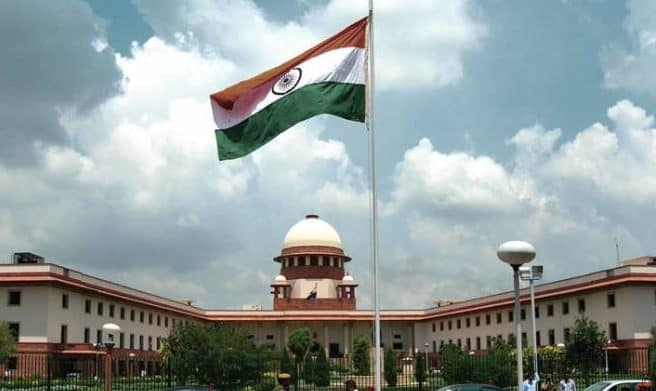New Delhi: The Supreme Court on Wednesday said that it will examine whether a person in power can be held accountable for making a statement in public about a rape victim who has the fundamental right of protection of life and personal liberty.
A bench of Justices Dipak Misra and A M Khanwilkar said that it will have to see whether the fundamental right of freedom of speech and expression will be governed under reasonable restriction of decency or morality or other preferred fundamental rights will also have impact on it.
“Both Article 19 (freedom of speech and expression) and Article 21 (protection of life and personal liberty) are preferred rights.
“We need to see whether freedom of speech and expression which is not absolute can be governed only by reasonable restriction provided under Article 19 (2) or Article 21, will also have impact on it,” the bench said.
It said, “The core issue, as is projected before us, is whether the right conferred under Article 19(1)(a) is to be controlled singularly by the language employed under Article 19(2) or also the other fundamental right, that is right under Article 21 would have any impact on it.”
The bench, while giving an example, said that if a minister or government servant like a DGP in exercise of freedom of speech and expression makes a statement that alleged incident of rape is false or an outcome of political controversy then can he be held accountable.
It further said that the said statement of the minister or government servant may give a direction to the probe in the case and impact the fundamental right of the rape victim under Article 21 of Constitution.
The court was hearing a plea filed by a man whose wife and daughter were gangraped in July last on a highway near Bulandshahr, seeking transfer of the case to Delhi, besides lodging of an FIR against former Uttar Pradesh minister Azam Khan for terming the alleged incident as an outcome of political controversy.
The top court had earlier said it would deliberate upon the questions framed by it on the freedom of speech and expression and probable impact of statements of those holding high offices on free and fair probe in heinous cases including rape and molestation.
Attorney General Mukul Rohatgi said reasonable restrictions are already provided for Article 19(1)(a) in 19 (2) in the bracket of decency or morality.
PTI

